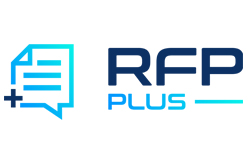
If you’ve ever been part of an HOA board, you know vendor hiring isn’t just another to-do, it’s a high-pressure decision with lasting consequences.
You want the job done right. You want residents happy. You want to stay within budget.
But in the rush to check it off the list, it’s easy to overlook red flags or skip important steps.
Let’s break down the top five mistakes HOA boards make when hiring vendors, and how you can steer clear of them from day one.
1. Not Defining the Scope Clearly
One of the easiest ways an HOA board can derail a vendor search is by sending out a vague or incomplete RFP. When the scope isn’t clearly defined, vendors are left to guess what you need, which often leads to confusion and miscommunication.
You might receive five proposals that look completely different. Some include materials, others don’t. One promises a two-week timeline, another says two months. Without a clear scope, comparing proposals feels like comparing apples to oranges.
The key is clarity. Before you reach out to any vendors, make sure your RFP includes the deliverables, timeline, budget range, and what success looks like from your board’s perspective.
Pro Tip: Use a reliable RFP template to keep things consistent. It helps ensure you’re asking the right questions and giving vendors all the details they need to submit an accurate bid.
Clear expectations lead to better proposals, smoother communication, and more successful projects.
2. Focusing Only on Price
We all want to be smart with the budget, but choosing the lowest bid just because it’s the cheapest can backfire. The lowest price doesn’t always mean the best value. In fact, it often means corners might get cut, or service quality might take a hit.
It’s not uncommon for boards to accept the most affordable proposal, only to end up dealing with delays, poor workmanship, or extra charges that weren’t in the original scope. Suddenly, that “great deal” starts looking a lot more expensive.
Instead, consider the full picture. Look at a vendor’s experience, reputation, insurance coverage, references, and any warranties they offer. These factors matter just as much, if not more, than price alone.
Pro Tip: Use an evaluation rubric to score proposals across multiple categories. It helps the board make a more balanced decision and keeps the focus on long-term value, not just the upfront cost.
3. Not Checking References or Licenses
On paper, a vendor might look perfect. But unless you dig a little deeper, you won’t know if they’re truly reliable. Skipping the reference or license check is one of the riskiest mistakes a board can make.
We’ve heard the horror stories — vendors who stop showing up halfway through the job, leave projects unfinished, or don’t actually have valid insurance. These situations create stress for the board, frustration for residents, and can expose the association to legal liability if corners are cut or unsafe conditions are left behind.
Do your homework. Always call references and ask detailed questions. Verify that licenses are current and confirm liability insurance is in place.
Pro Tip: When speaking with past clients, don’t just ask if the job got done. Ask how the vendor communicated, whether they stayed on schedule, and how they handled any problems that came up.
A quick phone call now can save your board major headaches later.
4. Skipping the Contract Details
Even if a vendor seems trustworthy, a verbal agreement or casual email thread isn’t enough to protect your HOA. When things go wrong, and they sometimes do, you need more than a handshake.
Without a clear contract, important details can fall through the cracks. You may end up with vague deliverables, missed deadlines, or no way to hold the vendor accountable if the work doesn’t meet expectations.
Always put it in writing. A strong, lawyer-reviewed contract should include a detailed scope of work, payment schedule, project milestones, deadlines, and what happens if those aren’t met.
Pro Tip: Make sure the contract also names a point of contact and includes an escalation clause. That way, if issues come up, you know exactly who to reach out to and how to resolve things quickly.
A clear contract protects everyone and sets the tone for a professional working relationship.
5. Not Keeping Records of the Process
Boards come and go, but your vendor decisions should have a clear paper trail. Without good documentation, the next board might not know why a vendor was chosen, what was agreed upon, or what issues came up during the project.
It’s surprisingly common to have no records of how the decision was made or what the expectations were. That can lead to confusion, repeated mistakes, or even disputes down the line.
Keep it simple and consistent. Document every step of the process, from RFP drafts and selection criteria to vendor emails and final contracts.
Pro Tip: Use centralized software to store all RFPs sent to vendors along with their responses and any communication. This ensures easy access for current and future board members and makes transitions a lot smoother.
How to Get Vendor Hiring Right Every Time
Every HOA board wants to make smart, confident decisions, but even well-meaning boards can fall into these five common traps. The good news is, they’re all avoidable with the right process and a little support.
You don’t have to be a procurement expert to get this right. With clear planning, thorough documentation, and the right tools in place, your next vendor search can be smooth, transparent, and stress-free.
At RFP Plus, we help HOA boards streamline vendor hiring with a robust RFP tracking solution that keeps all vendor responses in one place, simplifies communication, and makes it easy to stay on top of license and insurance expirations for better compliance.
Try RFP Plus for your next vendor search, because your community deserves better than guesswork.

